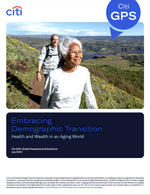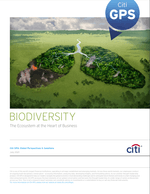Ian Goldin et al
View CITI GPS ReportMigration and the Economy: Economic Realities, Social Impacts and Political Choices, the latest Citi-Oxford Martin School GPS report, provides fresh evidence on the implications of immigration for the growth and dynamism of economies, and on its fiscal costs and benefits.
Lead author Professor Ian Goldin, Professor of Globalisation and Development at the University of Oxford, and researchers at Citi found that migration has had a substantial impact on recent aggregate economic growth in OECD countries:
- In the UK if immigration had been frozen in 1990, real GDP in 2014 would have been around £175bn lower
- In Germany real GDP would have been €155bn lower
- In the US migration has made a material contribution to long-term and also more recent growth, and the best-performing industries and regions in the US are highly dependent on migrants’ critical contribution
- Migrants contribute disproportionately to innovation, business start-ups and economic growth.
The findings throw light on the growing disconnect between public perceptions of migration and the actual trends. While in many advanced economies immigration has become a toxic issue in election campaigns and political debate, the authors’ fiscal analysis shows no evidence of a trend of migrant ‘benefit scroungers’. While there are wide differences, in general migrants:
- Consume fewer benefits and receive less from the public purse than native residents
- Are predominantly of working age, improving the proportion of workers to dependents within economies
- Have their training and education paid for by their country of origin
The report finds that migration raises levels of innovation, productivity and economic growth.
It emphasizes that although migrants are on balance highly beneficial for societies, there are costs and these need to be addressed more effectively. The concentration of migrants in particular areas puts pressure on public services and infrastructure. The authors recommend redistribution of tax receipts to address burdens on local and regional authorities, more active labour market policies, such as education and training for the unemployed, a greater focus on language, certification and other measures which will ensure that migrants contribute more fully and better utilise their skills
- Read Migration and the Economy: Economic Realities, Social Impacts and Political Choices
- The report forms part of a series of joint Citi-Oxford Martin School reports. The wider collaboration between Citi and the Oxford Martin School also includes joint research programmes on Technology and Employment and Inequality and Prosperity.





